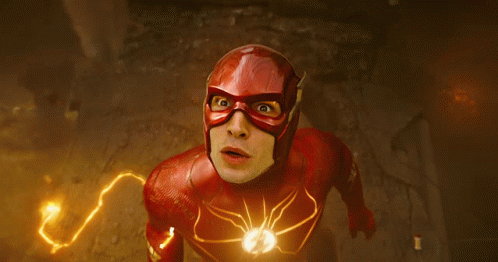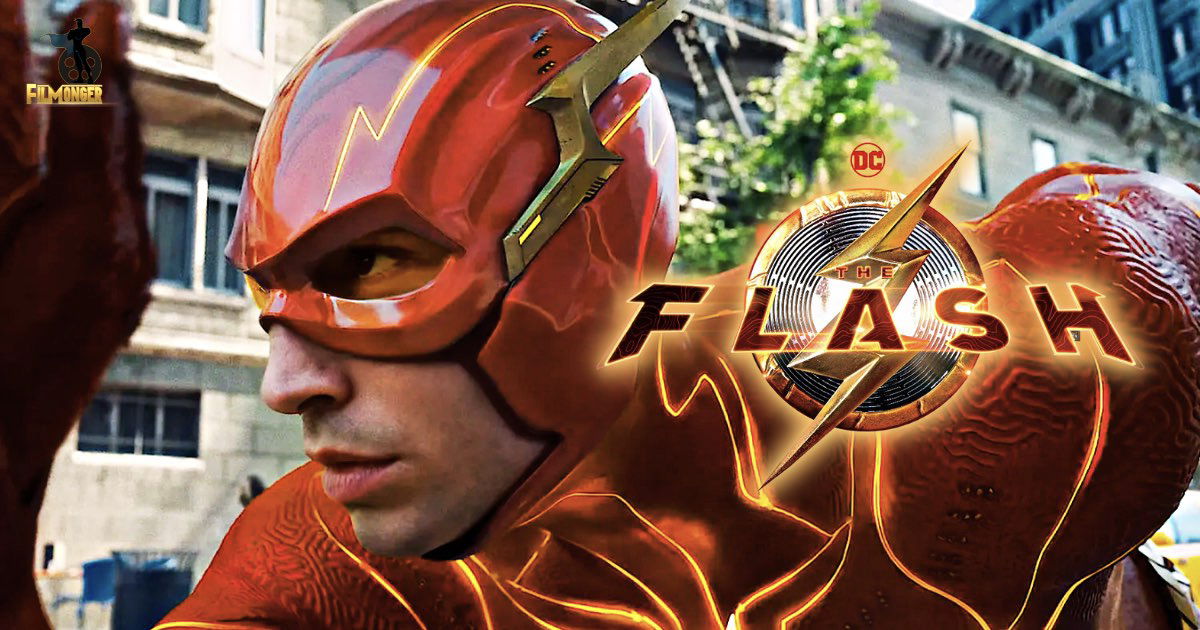The Flash, a highly anticipated DCEU film, disappoints at the box office, baffling experts and fans, becoming a major superhero flop
In a shocking turn of events, The Flash, a highly anticipated entry in the DC Extended Universe (DCEU), has stumbled into the annals of box office infamy, solidifying its status as one of the biggest flops in DCEU superhero history. The film’s journey from production to its underwhelming release has left industry experts and fans scratching their heads. Let’s delve into the details behind this unexpected downturn.
The Flash’s Financial Fiasco

When The Flash was greenlit, expectations soared. With a substantial production budget of $200 million and an additional $200 million spent on marketing, the stakes were high. The film needed to perform exceptionally well to recoup its costs.
However, reality painted a different picture. The Flash managed to amass a mere $268.53 million globally, with $108.13 million coming from the domestic box office and $160.4 million from international markets. This left it with the unenviable title of the ninth-highest-grossing DCEU film out of 14 theatrical releases. To put this in perspective, it barely outperformed the MCU’s lowest-grossing movie, “The Incredible Hulk,” which grossed just $265.57 million, without adjusting for inflation.
Even its debut on the Max streaming platform failed to generate significant buzz, attracting just 1.1 million U.S. households in its initial three days. While it outperformed “Shazam! Fury of the Gods” in its opening six days, it lagged behind “Black Adam.”
Examining Other DCEU Highs and Lows

To contextualize The Flash’s underperformance, let’s compare it to other notable DCEU entries:
Justice League (2017) – Loss
- Production Budget: $300 million
- Worldwide Gross: $657.93 million
- Estimated Losses: $50-100 million
Aquaman (2018) – Win
- Production Budget: $160 million
- Worldwide Gross: $1.14 billion
- Profit: $260.5 million
Black Adam (2022) – Loss
- Worldwide Gross: $391.26 million
- Financial Result: Varied reports, with potential losses of $50-100 million
Shazam! (2019) – Win
- Production Budget: $85 million
- Worldwide Gross: $363.56 million
- Profit: $74 million
Wonder Woman (2017) – Win
- Production Budget: $150 million
- Worldwide Gross: $822.8 million
- Profit: $252.9 million
Wonder Woman 1984 (2020) – Loss
- Production Budgets: $200 million
- Worldwide Grosses: Approximately $166-167 million
The Suicide Squad (2021) – Loss
- Production Budgets: $185 million
- Worldwide Grosses: Approximately $166-167 million
The Flash stands out as a particularly bleak chapter in the DCEU’s financial history.
Why Did “The Flash” Fail?

The DCEU has recently faced a string of box office disappointments, and The Flash is the latest addition to this list. Some key factors contributing to its dismal performance include:
- 1. The Upcoming DC Reboot:
- News of an impending DC Universe reboot had already spread widely when The Flash was released. Fans had learned of 10 upcoming DC projects, leading to questions about why they should invest in the final few films of a universe that was about to undergo a significant transformation.
- 2. Quality and Consistency Concerns:
- The DCEU has long struggled with mixed quality and uneven storytelling, often playing second fiddle to the immensely successful Marvel Cinematic Universe (MCU). As the MCU fades into the background, many viewers appear hesitant to grant the DCEU another opportunity to win them over.
While some might attribute the movie’s failure to controversies involving Ezra Miller, the actor’s legal situation had a limited impact on the broader audience. Ultimately, The Flash seems to have suffered from an overarching perception problem: the DCEU’s image of inconsistency and its challenge to escape the shadow of the MCU.
As The Flash streams on Max, it serves as a stark reminder of the complexities and challenges inherent in the ever-evolving landscape of superhero cinema.
